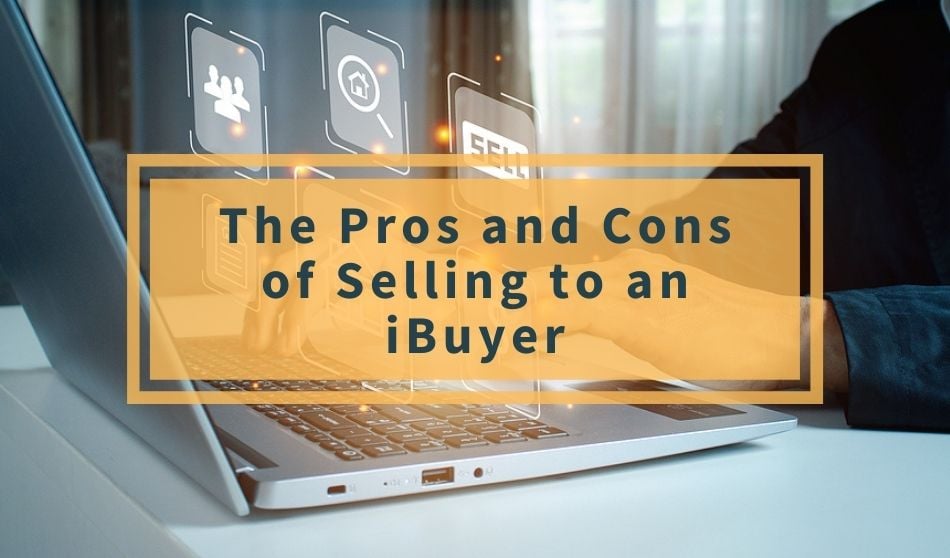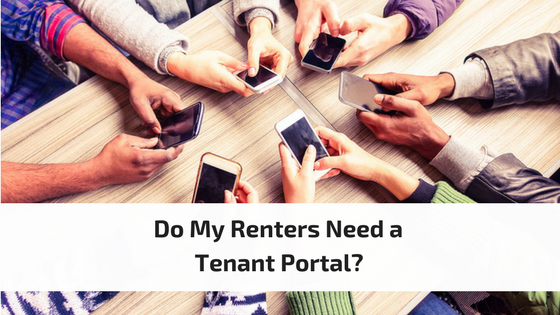There are a variety of reasons why a landlord might want to sell their rental property. However, the selling process can be a complicated space to navigate, especially with tenants that are still renting. It might seem like the most logical decision is to wait until your tenants move out before putting up a property for sale. But in this case, the seller needs to decide if the convenience of selling an empty home is worth the potential income loss. This is where iBuyers can come in handy.
What is an iBuyer?
“iBuyer” is the term for a company that buys homes online, often without looking at them first. The “i” stands for instant, so they might also be referred to as instant buyers. Generally, these iBuyers will buy without first seeing the home and use technology to determine an appropriate market-based cash offer.
After they purchase the home, they will conduct a home assessment and make any changes or repairs to optimize the resale price before they sell it. iBuyers generally won’t purchase a property that requires a lot of renovation because they rely on a quick turnaround. Depending on the iBuyer, they might hire third-party real estate agents to sell the homes, while others have on-staff listing agents. When the property is listed for sale, the listings will generally indicate that the seller is an iBuyer.
There are a few different types of instant offers that the iBuyers will use, and these are important to be aware of.
- Traditional iBuying: This is a good option for any landlords that need to sell their property quickly. In these cases, you can end up selling your rental property for a cash offer in a couple of days.
- Trade-in: If you want to sell your current rental property and quickly buy another, then a trade-in is an option for you. With this model, iBuyers will make a cash offer on a home that you want, essentially buying it for you. After you move into your new home, the iBuyer will then sell your old property for you. After it sells, any costs from prepping your old home are settled and your new property is transferred into your name.
- Bridge financing: Similar to a trade-in, this technique is more focused on sellers that want to maximize their profit. In this case, the iBuyer fronts you the money to purchase a new home. The difference is that, after you move in, you essentially lease the house from the iBuyer and list your own home traditionally. If it doesn’t sell within a predetermined amount of time, then the iBuyer will buy it off of you at a pre-agreed price. This gives you the capital you need to end your lease and to get a traditional mortgage.
Important Notes for Selling a Rental Property to an iBuyer
Now that you have a broad overview of what ibuying is and what options are available to you, how does it affect selling your rental property? Starting off, you will need to inform your tenants that you plan on selling. With an iBuyer, this is particularly important because the buying and selling process is much faster than traditional methods.
You are able to cancel leases before their due dates as long as both parties agree. But your tenants are legally entitled to live in the rental through the time that their lease is scheduled for. Month-to-month tenants are easier to move, as you only need to provide them a written notice that their agreement is up in however many days.
Learn more: Selling A Rental Property: A Guide To Landlord Rights
Pros of Selling to an iBuyer
Convenience:
With an iBuyer, you won’t need to prepare your rental property for showing or make it available for potential buyers. This is a benefit because otherwise, you’ll need to work with your tenants in order to show the property. And depending on the tenant, this can be more of a problem than you want to deal with. This also helps to lower your stress levels during the selling process, which is always a benefit.
Timing:
You have more control of your selling timeline if you choose to go the iBuyer route. With this option, your home won’t sit on the market for an undetermined amount of time, leaving you in limbo. Depending on the iBuyer, you might be able to extend the closing date, which can be useful if you want to give your tenants more time to find a new home.
Predictability:
You will know the exact timeline of selling your property when you sell with an iBuyer. Because it is a cash offer as well, you also won’t need to worry about mortgage financing falling through like you would with a traditional buyer.
Cons of Selling to an iBuyer
Displacing your tenants:
While displacing your tenants is something that might happen no matter which way you decide to sell, the timeline with an iBuyer is typically much faster than with a traditional buyer. This means you have less time to cancel leases or to deal with a tenant who refuses to move.
Learn more: Selling A Rental Property: A Guide To Landlord Rights
Qualifications:
You’ll need to be in a market where iBuyers actively operate, which can be a struggle for rural properties. You’ll also need to have the home that an iBuyer is looking for. This means no homes that need extensive repairs, no homes that are highly customized, or that are on the older side. Generally speaking, relatively new houses, condos, and townhomes are going to be what fits the model of an iBuyer.
Repairs:
After you’ve accepted an iBuyer’s offer, they will conduct an assessment of your home. This is similar to a home inspection and is designed to figure out things the iBuyer might need to replace or repair. You may be able to negotiate to make the changes yourself, but if the iBuyer does it, then the costs of those repairs and replacements will come out of what they pay you. Depending on the state of your property, this can take a large chunk out of your gain.






